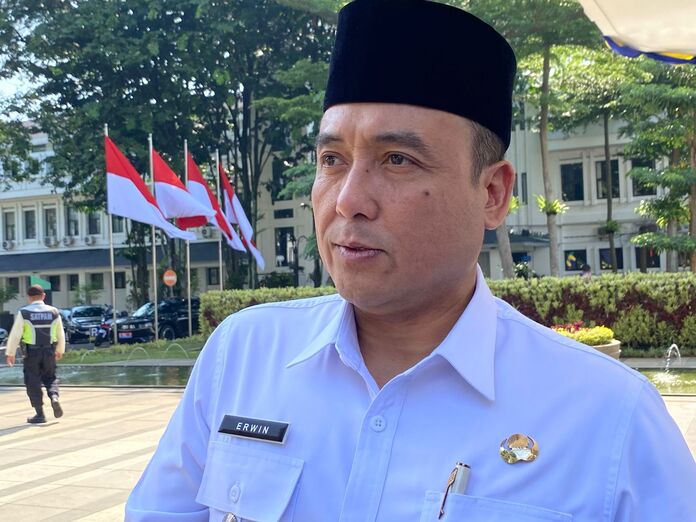The Bandung City Government is strengthening oversight of the Free Nutritious Meal Program implementation across all schools. This measure is taken to ensure the food served to students is safe, healthy, and meets established nutritional standards. All providers are required to possess a Hygiene Sanitation Eligibility Certificate.
The Deputy Mayor of Bandung emphasized this point after coordinating with stakeholders. According to him, the coordination meeting attended by the Food and Nutrition Program Implementation Unit, nutritionists, food provider partners, and school foundation representatives was an important moment to strengthen the shared commitment to maintaining food quality and safety in the educational environment.
“Thankfully, all parties were present and agreed to continue upholding food safety principles firmly. We do not want any poisoning cases to befall students. Therefore, every food provider is required to have a Hygiene Sanitation Eligibility Certificate,” stated the Deputy Mayor at Bandung City Hall.
The Deputy Mayor stressed that the implementation is not merely about fulfilling administrative requirements but must be genuinely implemented in every stage of food service. Starting from the processing stage, food ingredient storage, to the distribution of food to schools.
“This is not just a formality, but a real guide so that partners truly maintain the hygiene of the kitchen and the food served,” he said.
Besides food safety, the Deputy Mayor stated that the coordination meeting also discussed improving the quality of menus served in the program. Food providers were asked to ensure balanced nutritional menus with flavors suitable for school children’s tastes.
“We also agreed on the taste and nutritional content. All providers must be able to present healthy, delicious, and nutritionally balanced food,” said the Deputy Mayor.
However, the Deputy Mayor mentioned that technical discussions regarding the supervision mechanism and involvement of related parties will still be further formulated by the local government.
“The technical matters will be discussed later, including who will be assigned as the field supervision person in charge,” he said.
Through strengthened oversight, the Deputy Mayor affirmed the obligation of certification, as well as the formation of a Program Task Force, in creating a healthy and safe school environment for children’s growth and development. The program is expected not only to guarantee food safety but also to be a strategic effort in improving the health quality and intelligence of the young generation of Bandung City.






